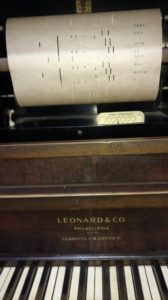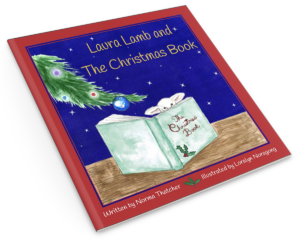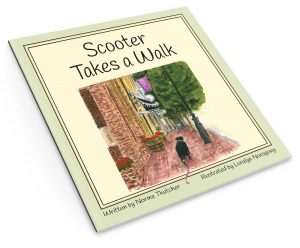
I was about eight when my family discovered I could play the piano by ear; that is, I could pick out a tune without reading any sheet music.
My grandmother Elizabeth had a piano that my father had bought for her. Grandma and I had just finished watching a television show that had a sad ending. The song that played throughout the show was called When You and I Were Young, Maggie. (It was written by George Washington Johnson about a couple growing old together, although George’s bride died about a year after they were married.)
When the show ended, I got up from the couch, went to the piano, and plunked out the tune. Grandma was both amazed and quite proud. Piano lessons soon ensued.
But alas, child prodigy I was not. While I loved playing (and I could sit on that bench for hours playing random songs and making up melodies of my own), I did not have the self-discipline to practice as required.
I recall going to my weekly lessons and playing the piece I was to have learned that week. My teacher would smile at me and say, “Very nice. Now will you please play the song as it’s written?”
I didn’t last long in formal lessons.
But while we were growing up, my cousins and I had many fun times at the piano. We invented radio shows and would belt out tunes while the piano played. No, that’s not a passive sentence or a typo: we had ourselves a player piano.
So how does a player piano work? Newton’s Second Law of Motion: Force = Mass * Acceleration or F = ma. Duh. Ha…I’ll bet I geeked you out. Well, the true scientific explanation can be found on http://playerpiano.yolasite.com/how-does-a-player-piano-work.php.
Here’s what we knew: There were two foot pedals that you pumped up and down. That turned a perforated roll across a tracker bar that ended up producing the right notes to be struck. The faster one pumped, the faster the music played.
Many of the songs had the words printed on the side at the correct point to aid in our singing. I like to think of this as a precursor to karaoke.
One of our cousin group’s favorite numbers was The Song is Ended but the Melody Lingers On, composed by Irving Berlin, with lyrics written by Beda Loehner in 1927. It’s a lovely song.
But for whatever reason, we would play that song so fast that it no longer resembled a sweet sentimental song, but sounded rather like a John Philip Sousa march. And we sang correspondingly louder and faster and of course ended up collapsing in laughter. I am grateful that those days were before cell phone videos appeared on YouTube.
That piano holds many fond memories for me. As a young woman I created two songs that I can still play. If I had just been a better music student, I could have written those scores.
Unfortunately, the piano has aged to the point of disrepair. The bellows have sprung a leak, so no amount of pumping produces any movement. The piano is terribly out of tune, and some of the keys don’t produce any sound at all. The paper rolls are brittle with age.
During the last decade of my mother-in-law Rosalie’s life, she was fond of saying, “Getting old isn’t for sissies.” I guess that’s true, even for pianos.
To my readers: Share a story of how music has played a role in your life.



